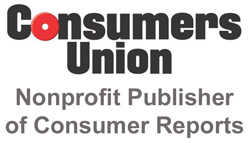 Washington, D.C. – The Federal Communications Commission (FCC) approved an initial proposal for so-called “Open Internet” rules that may allow Internet service providers to charge online companies for faster access to consumers, which have raised concerns that the plan could create fast lanes and slow lanes for Internet traffic.
Washington, D.C. – The Federal Communications Commission (FCC) approved an initial proposal for so-called “Open Internet” rules that may allow Internet service providers to charge online companies for faster access to consumers, which have raised concerns that the plan could create fast lanes and slow lanes for Internet traffic.
In response to those concerns about a two-tiered Internet, the Commission is now asking for public comment on whether paid prioritization deals should be banned and whether the Internet should be regulated as a public utility.
Consumers Union, the advocacy arm of Consumer Reports, said today’s FCC discussion about the rules included encouraging words about the need for an open Internet, but the agency’s plan still appears to go against the principles of ensuring one.The proposal could negatively impact consumer prices, choices, and access to the Internet, as well as free speech and innovation.
Delara Derakhshani, policy counsel for Consumers Union, said, “The FCC tried to soften the blow by asking better questions about net neutrality and ‘pay-to-play’ deals, but the underlying plan is still far from neutral.
“Net neutrality means all online content is treated equally. But under these rules, Internet providers could make one site available faster than another. Your provider could play favorites among the online companies that pay to play. These proposed rules could eventually mean an end to the free and open Internet as we’ve known it.”
The FCC approved the proposal by a vote of 3-2. Following today’s vote, there will be a four-month period for the general public to comment on the plan. After the comment period, the FCC will vote again on final rules that will likely have been revised based on the public response.
Derakhshani said, “We still believe the best way to ensure an open Internet and protect consumers is reclassifying the Internet as a public utility. We are going to reach out to consumers across the country and urge people to speak out during the comment period. A handful of powerful Internet providers like Comcast and Verizon shouldn’t be able to dictate the future of the Internet.”


